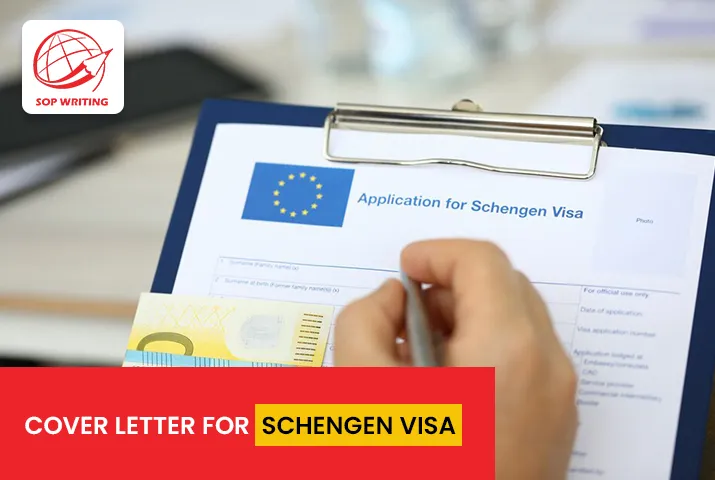The Importance of a Schengen Visa Cover Letter
Applying for a Schengen visa can seem daunting, but with the right preparation, you can significantly increase your chances of approval. One of the most crucial elements of a successful application is the cover letter. This document serves as your personal introduction to the visa officer, allowing you to present your case comprehensively and persuasively. A well-crafted cover letter can clarify your intentions, provide necessary context, and address any potential concerns the visa officer may have. Failing to include a strong cover letter, or submitting a poorly written one, can lead to delays or even rejection. Therefore, taking the time to create a compelling cover letter is an essential step in the visa application process. The cover letter is your opportunity to make a positive first impression and demonstrate that you are a responsible traveler who intends to abide by the conditions of the visa.
Why a Cover Letter Matters
The cover letter is not merely a formality; it’s a vital component of your application. It provides the visa officer with a narrative that explains your travel plans in detail. It allows you to articulate your purpose of visit beyond what is stated on the application form. A well-written cover letter helps you demonstrate your credibility and intentions. This is where you can explain your travel plans, provide context for your trip, and assure the visa officer that you intend to return to your home country before your visa expires. Moreover, it provides an opportunity to address any potential concerns the visa officer might have. For instance, if there is a gap in your employment history or a complex travel history, the cover letter lets you explain these details proactively.
Essential Information to Include
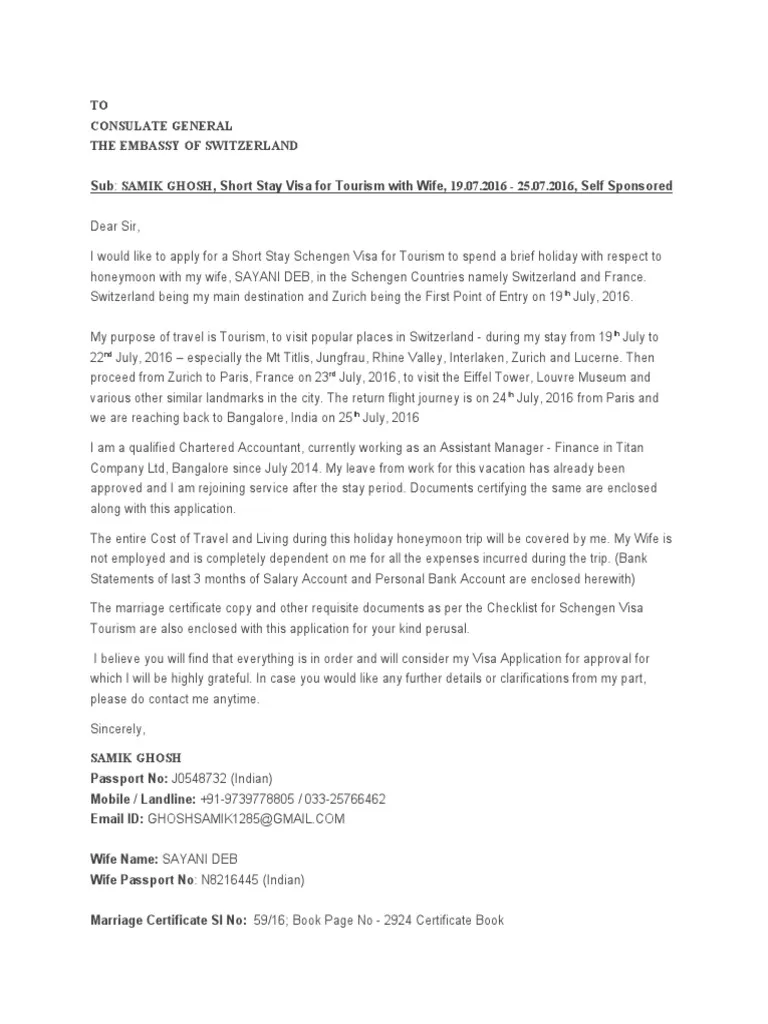
A strong Schengen visa cover letter includes several key pieces of information. Begin by stating your name, passport number, and the purpose of your trip. Clearly state the dates of your travel and the countries you plan to visit within the Schengen area. Be specific about your itinerary, including where you plan to stay and what activities you have planned. Furthermore, list all the supporting documents you are submitting with your application, such as your flight tickets, hotel reservations, bank statements, and proof of employment. This acts as a checklist for the visa officer, ensuring they can easily locate the necessary information. It’s essential to write in a clear, concise, and organized manner, ensuring all the necessary information is readily available.
Top Tip 1 Clearly State Your Purpose of Travel
One of the most critical aspects of your cover letter is clearly stating the purpose of your travel. This should be the very first thing you address. Are you visiting for tourism, business, study, or to visit family or friends? Clearly state your reason for the trip. This clarity sets the tone for the entire letter. Be as specific as possible. If you’re visiting for tourism, provide a brief outline of your planned activities, such as sightseeing, visiting museums, or attending events. If you are traveling for business, mention the companies you will be meeting with, and the purpose of these meetings. The more detail you provide, the more confident the visa officer will be in your application. Demonstrating a clear purpose can make your application stand out.
Explain your travel itinerary
Detailing your travel itinerary is crucial to provide a clear understanding of your trip. Include the specific dates of your arrival and departure, as well as the planned cities and countries you will be visiting within the Schengen area. Provide information about your accommodation, such as the names and addresses of the hotels you’ll be staying in. Include a day-by-day outline of your activities, such as visiting museums, historical sites, or attending conferences. If you are visiting friends or family, include their names, addresses, and your relationship to them. This detailed itinerary helps the visa officer understand your trip’s scope and reassures them of your genuine intentions. Use a clear and organized format to make it easy to follow.
Provide supporting documents
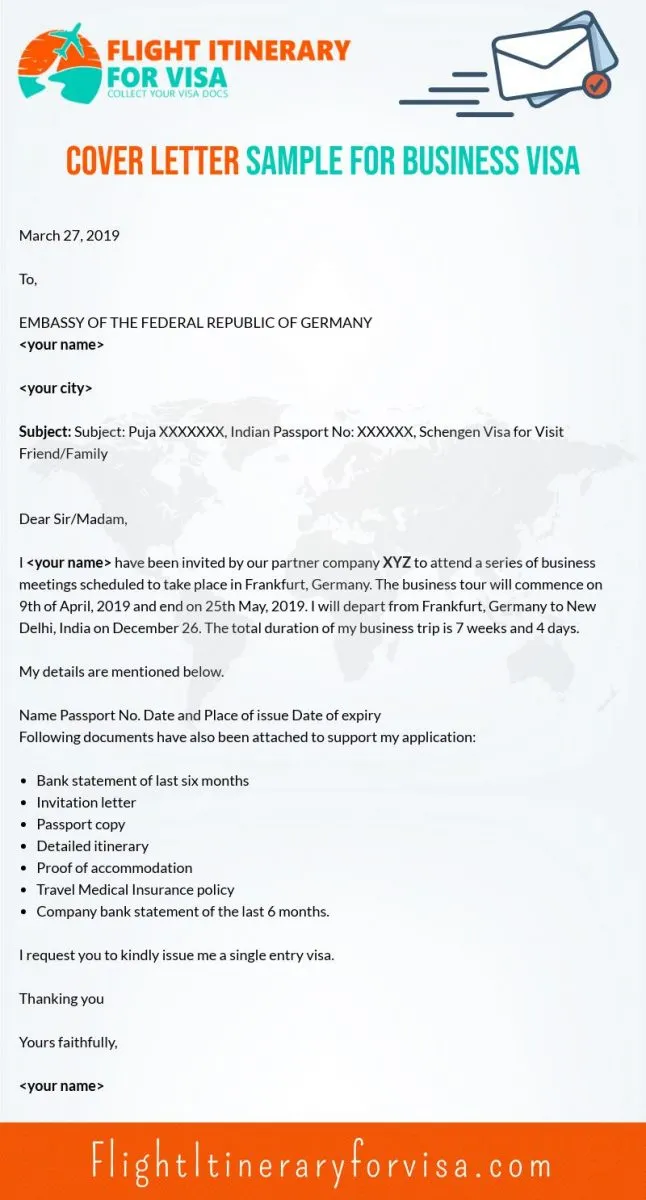
Always list the supporting documents you are including with your application. This includes your flight tickets, hotel reservations, bank statements, proof of employment, and any other documents that support your travel plans. Briefly describe what each document is and what it proves. For example, state that your flight tickets confirm your travel dates and destination, while your hotel reservations confirm your accommodation. Your bank statements should demonstrate your financial ability to cover the cost of your trip. Proof of employment shows your ties to your home country. This section acts as a checklist for the visa officer and helps them quickly verify the information in your application. Make sure all supporting documents are current and authentic.
Top Tip 2 Be Concise and Specific
While it’s important to provide enough detail, your cover letter should be concise and to the point. Avoid rambling or including unnecessary information. Every sentence should have a purpose and contribute to the overall narrative of your application. Use clear and straightforward language and avoid jargon or overly complex sentences. Focus on the essential details that support your case and explain your travel plans. The visa officer reviews numerous applications, so making your cover letter easy to read and understand will increase the chances of it being carefully considered. Short, well-structured paragraphs and bullet points can help keep your letter organized and make it more readable.
Avoid unnecessary details
Refrain from including irrelevant or unnecessary information in your cover letter. While it’s good to be friendly and conversational, stick to the facts and information that directly support your visa application. Avoid personal anecdotes or stories that do not directly relate to your travel plans or ties to your home country. Refrain from providing information that may confuse the visa officer. For instance, avoid discussing the details of your personal life or your long-term aspirations unless they are directly relevant to your ability to return home. Keep the focus on your travel purpose, itinerary, and the supporting documents you are providing. This will ensure your letter remains clear and persuasive.
Focus on relevant information
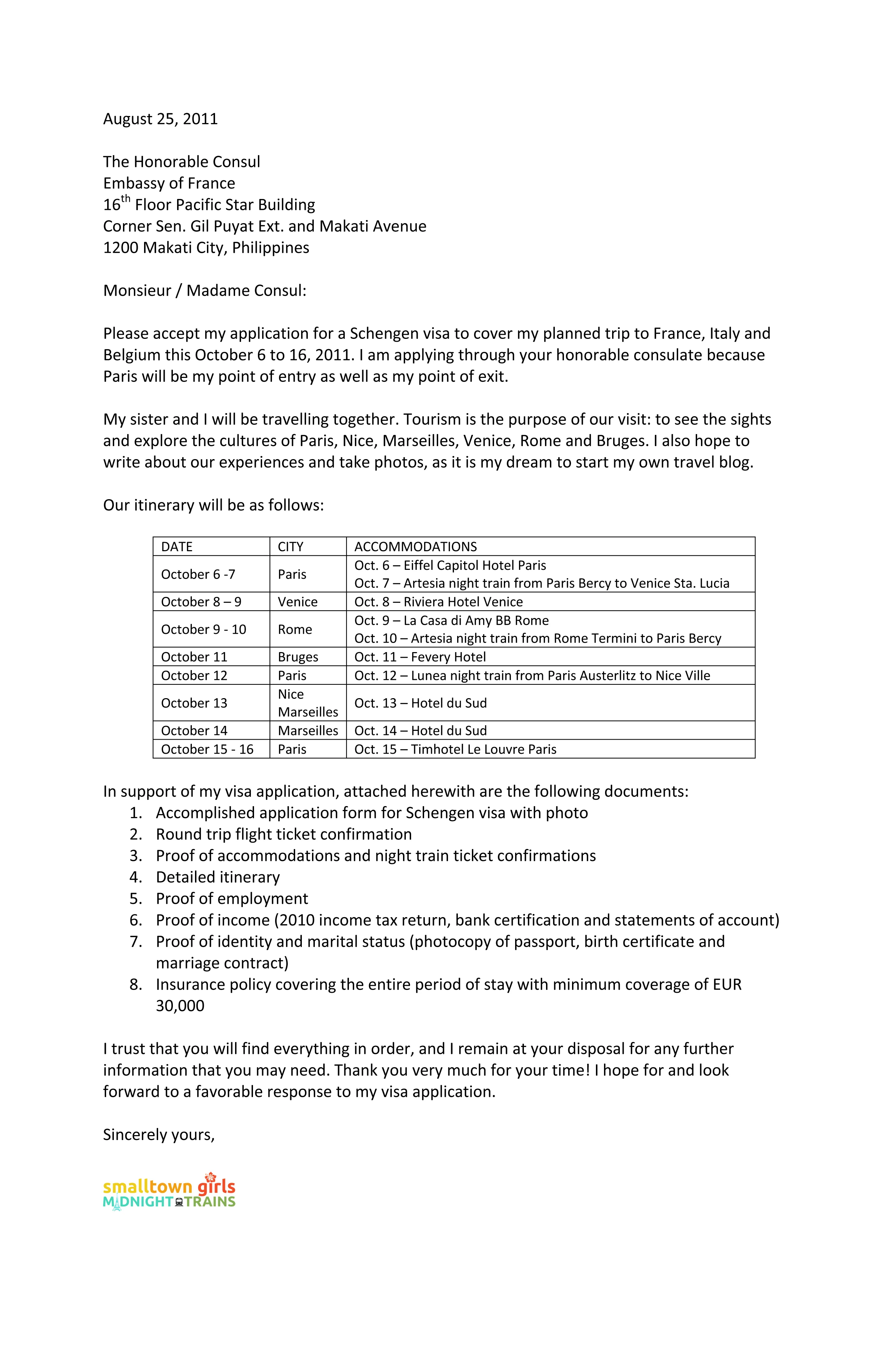
Direct your attention to the information that is most crucial for the visa officer to know. Focus on the details that support your travel purpose, your itinerary, and your ties to your home country. Include information about your employment or education, financial resources, and accommodation. Highlight the activities you plan to undertake in the Schengen area and the specific reasons for your visit. Always explain how you will finance your trip and ensure you have sufficient funds to cover your expenses. This demonstrates your financial responsibility and helps the visa officer be confident in your ability to fund your travel. Make certain that all information provided is accurate and readily verifiable through your supporting documents.
Top Tip 3 Address the Visa Officer Directly
Address your cover letter to the visa officer, typically by using a formal salutation such as Dear Visa Officer or To Whom It May Concern. This shows respect and professionalism. Within the letter, write in the first person and refer to yourself as ‘I’ or ‘me’. This helps create a more personal and direct tone. This direct address makes your letter more engaging and shows that you are taking your application seriously. The visa officer is reading your personal statement, so a direct and sincere approach is appreciated. Express your intent to abide by the visa conditions and provide all necessary information in a clear and organized manner. A well-written letter, properly addressed, shows that you are serious about your application.
Maintain a professional tone
Maintain a professional and respectful tone throughout your cover letter. Avoid using slang, informal language, or overly casual phrasing. Instead, use formal language and a polite tone. Your cover letter is a formal document, and maintaining professionalism shows respect for the visa process and the authorities involved. Ensure your writing is clear, concise, and well-structured, which demonstrates your ability to communicate effectively. Use appropriate grammar and punctuation. The overall tone should convey your sincerity and genuine intention to comply with the visa conditions and return home after your trip. A professional tone indicates your commitment to a successful travel experience and adds to your credibility.
Use formal language

Use formal language to convey your message effectively. Formal language includes precise vocabulary, clear sentence structure, and avoidance of contractions and colloquialisms. Use words like ‘I request’, ‘I am submitting’, and ‘I intend to’ instead of more informal phrases. Avoid slang, idioms, and any language that could be misinterpreted. Make sure to use correct grammar and punctuation, and ensure that the sentences are clear and concise. The choice of formal language underscores your professionalism and shows that you are taking your application seriously. Properly using formal language is critical to communicating effectively, demonstrating respect for the visa process, and increasing the credibility of your application.
Top Tip 4 Highlight Your Ties to Your Home Country
A crucial element of your cover letter is highlighting your ties to your home country. This is critical because it assures the visa officer that you have strong reasons to return home after your trip. Demonstrate your ties by providing information about your family, employment, property, and financial obligations. These ties assure the visa officer that you are less likely to overstay your visa. The more connections you can demonstrate, the better your chances of approval. This includes your employment status, property ownership, family responsibilities, and financial commitments, such as mortgages or loans. Strong ties provide a clear incentive to return home.
Demonstrate strong social and economic ties
Highlight both social and economic ties. Social ties include family, friends, and community involvement. Economic ties include employment, property ownership, and financial obligations. Providing evidence of these ties helps to reassure the visa officer that you have strong reasons to return to your home country. For example, if you are employed, include a letter from your employer stating your position, salary, and the duration of your employment. If you own property, include copies of your property deeds. Information about your family, such as a marriage certificate or birth certificates of your children, also serves as evidence. This combined information creates a clear picture of your commitments and reasons to return home after the trip.
Provide evidence of returning

Offer clear evidence that you plan to return to your home country before your visa expires. This can be achieved by providing documentation that proves strong ties. A letter from your employer confirming your job and stating that you are expected to return to your position after your trip. Property ownership documentation is a strong indicator of your commitment to return. Provide any information demonstrating your commitment to your home country, such as family commitments, a lease agreement for a property, and investments. The more compelling evidence you provide, the more confident the visa officer will be in your intention to return to your home country. These documents demonstrate your commitment to your home country.
Top Tip 5 Proofread and Edit Carefully
Proofreading and careful editing are critical to ensure your cover letter is free of errors. Proofreading ensures that your cover letter is polished and professional. Before submitting your letter, meticulously check for any grammar and spelling mistakes. Ensure all sentences are clear and coherent. Errors, no matter how small, can undermine the credibility of your application and create a negative impression. Consider asking someone else to review your letter, as a fresh pair of eyes can catch errors you might have missed. Make certain that the language and formatting are professional and easy to understand. A well-proofread letter shows that you are paying close attention to detail and are serious about your application.
Check for grammar and spelling errors
Meticulously check your cover letter for any grammatical errors or spelling mistakes. Run your letter through a spell checker and grammar checker. Ensure the correct punctuation is used throughout. Review your sentence structure, and verify the correct use of words. Incorrect grammar and spelling errors can create a negative impression and undermine your credibility. They can make your letter seem unprofessional. Carefully proofreading the document, several times if needed, is essential to ensure your message is delivered clearly and professionally. Consider having a trusted friend or family member proofread your letter to get a fresh perspective.
Ensure clarity and coherence
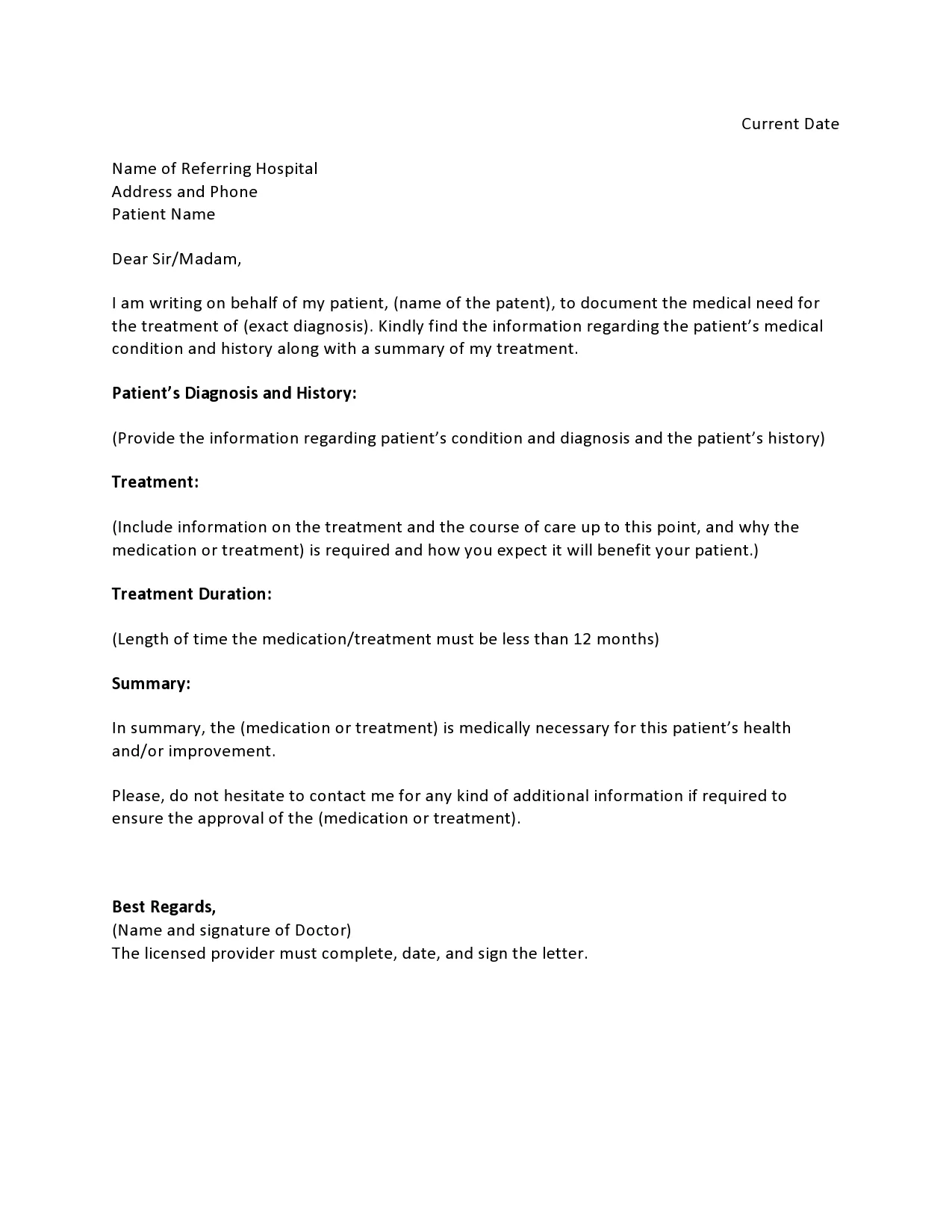
Ensure the cover letter is clear, concise, and easy to understand. The text should flow logically from one point to another. Organize your information in a structured way, using clear paragraphs and headings to guide the reader. Make sure all the information is relevant and that each sentence contributes to your overall argument. The goal is to provide the visa officer with a complete understanding of your travel plans, and intentions to return home. The visa officer should easily understand your travel plans and intentions. A well-written letter will significantly improve your application and provide the best impression of your application.
Conclusion
Writing a compelling Schengen visa cover letter is essential for a successful visa application. By clearly stating your purpose of travel, providing a detailed itinerary, highlighting your ties to your home country, and proofreading your letter carefully, you can significantly increase your chances of approval. Remember to be concise, specific, and professional. A well-crafted cover letter demonstrates your intentions and commitment to returning home, making a positive first impression on the visa officer. Follow these top tips, and you’ll be well on your way to obtaining your Schengen visa and enjoying your trip.
